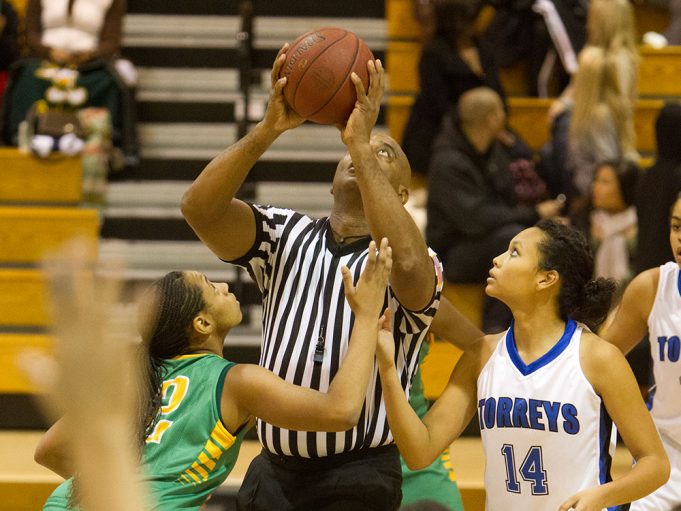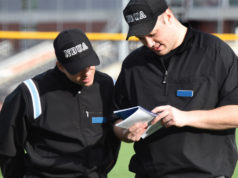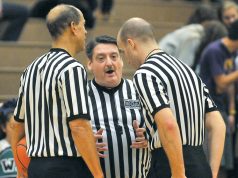Officials are supposed to make decisions based on close observation of plays, not on gut reactions to the action. To do that we must rely on experiences and training to execute proper judgment. Rules knowledge and familiarity to having seen a play or situation before helps to make good quality decisions.
In football, there are many times officials must decide whether or not to throw a flag on a particular play. Knowing what impact the potential flag has on the play is part of that decision-making process. For example, an official must determine if a player is holding his opponent or if the blocked player can fight through the contact, as well as whether the action has a material effect on the play. Is an advantage being gained?
In soccer, the striker has the ball along the wing, beats a defender, is turning the corner to the goal and is inside the penalty area when a defender comes in to make a tackle on the ball. The tackler is very close to committing a foul. Everyone looks to the referee to make a decision on the play. Is the tackle legal and a no-call correct? Or is the tackle a foul resulting in a penalty kick giving the attacking team a chance to tie the game, forcing the overtime shootout?
In that situation it is easy to react — to empathize with the team that has worked to tie the game. A reactor may just go with a penalty kick because he or she is caught up in the emotion of the game. However, an official is there to make a ruling on the play. Officials have the training and ability to put aside the emotion and bias of the moment to make an accurate decision.
Volleyball officials have many different decision-making processes to go through in each rally. They must determine if the play at the net is legal and whether the net is contacted, for example. Is there prolonged contact with a ball or is it legal? Officials should not react to a play that looks unusual, but instead use their training and rules knowledge to determine a fault.
Like volleyball, basketball officials have decisions to make on every play. Foul? Violation? Some of the best decisions officials make are no-calls. Is that spin move traveling or not? Did the established pivot foot return to the floor before the shot attempt or pass? If so, it’s traveling. Be an accurate decision-maker and don’t let crowd or coach reaction sway you.
Decision-making involves more than just the plays in the game. Many game management situations involve decision-making. Players and coaches howling from a dugout present issues for umpiring crews. A decision-maker deals with the issue before it becomes an actual problem. A reactor lets the chattering continue, does nothing about it and before long has seen the issue build to an unmanageable level.
Use your training and experience to make adequate decisions about the events that occur in your games and matches. Do not be influenced or judge a play by a reaction, whether anticipating a play or being influenced by external noise.
What's Your Call? Leave a Comment:
Note: This article is archival in nature. Rules, interpretations, mechanics, philosophies and other information may or may not be correct for the current year.
This article is the copyright of ©Referee Enterprises, Inc., and may not be republished in whole or in part online, in print or in any capacity without expressed written permission from Referee. The article is made available for educational use by individuals.

















